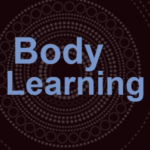Benefits and Research
The Alexander Technique attracts individuals wanting to improve mobility, ease postural discomfort, reduce chronic pain, and manage stress, while others seek lessons to advance their skills in the performing arts and athletic endeavours. Browse the menu lists below to learn more about how Alexander Technique can benefit you.
Use of resources
Please note that the content within the Research & Resources and Videos sections is provided only for general information purposes.
Use of Resources
Please note that the content within the Research & Resources is provided only for general information purposes. Many of the resources, such as books, are not free. Links to other websites or platforms are provided for viewers’ convenience, but ATC does not control or monitor them and accordingly cannot endorse their information or guarantee its accuracy and relevance. The use of content or links to third-party websites is at the viewers’ own risk. Viewers should contact an ATC-certified Alexander Technique teacher with any questions about the application of Alexander Technique to their specific issues.
Eating Habits
- Benefits
- Resources
- Videos
- Testimonials
There are a myriad of dieting methods available but 99% of the time diets eventually fail and weight is gained back because those particular diets focus primarily on what is eaten and the quantity of food allowed. They do not encourage examining the unconscious habits surrounding eating and the how, when, and why food is eaten. While diets do not work, changing the way you think about food can.
When individuals bring their eating habits to conscious awareness and truly understand what they are, they can methodically and without judgment begin to change habits they believe do not support healthy eating.
Alexander Technique has been used by individuals to change their approach with food through the Alexandrian principles of awareness and inhibition. Before they can change their relationship to food, they must become aware of their eating habits. Individuals learn to remove distractions when they eat, such as their phones, television, reading material, etc., so they can pay attention to how they eat. They observe what the food tastes like and their degree of enjoyment of it, how they chew the food, how quickly they eat, when they start to feel full, and they question potential emotional reasons behind why they choose to eat at any given moment or why they choose specific foods, etc. (The above information does not apply to serious eating disorders, which require professional guidance.)
For more information, read Shirley Wade-Linton’s article, On the Alexander Technique and Mindful Eating and listen to her podcast discussing how the principles of the Alexander Technique relate to eating habits.
Change involves carrying out an activity against the habit of life.
– F.M. Alexander
Please see videos for further information.
Articles
There are no testimonials currently available.


